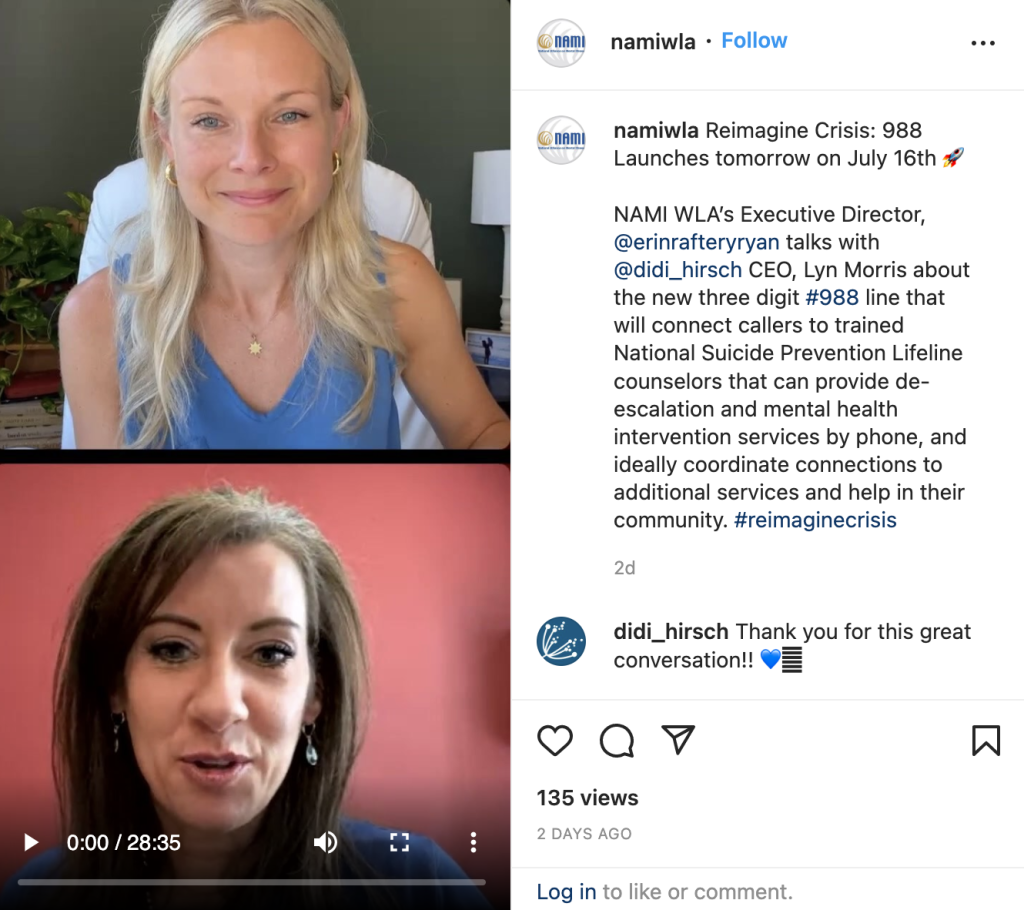988 Mental Health and Suicide Prevention Crisis Line Launched
988, the new three-digit number for mental health and suicidal crises, will be available nationwide by July 16, 2022. Once it goes live, 988 will connect people to trained crisis counselors that can provide de-escalation and mental health intervention services by phone, and ideally coordinate connections to additional services and help in their community.
Why Do We Need 988?
America is experiencing a mental health crisis. But the crisis is not irreversible.
- The suicide rate has climbed nearly 30% since 1999 – and the rate has increased in 49 out of 50 states over the last decade.
- From 2016-2017 alone, there was a 10% increase in suicides of young people between 15-24 years old in the US.
- Approximately one in five people above the age of 12 has a mental health condition in the US.
- Suicide is the second leading cause of death among young people, and the tenth leading cause of death in the US.
- More Americans died from mental health crises and substance abuse in 2018 than have died in combat in every war combined since World War II.
- However, suicide is most often preventable. For every person who dies by suicide annually, there are 316 people who seriously consider suicide but do not kill themselves.
- More than 90% of people who attempt suicide go on to live out their lives.
For too long, our system for mental health crisis services has been underfunded and undervalued. We will now meet this challenge with the evidence-based crisis intervention that the 988 crisis line will provide.
What Is 988?
A direct three-digit line to trained National Suicide Prevention Lifeline counselors will open the door for millions of Americans to seek the help they need, while sending the message to the country that healing, hope, and help are happening every day.
In 2020, the Lifeline received nearly 2.4 million calls. With an easy to remember and dial number like 988, the Lifeline hopes to reach many more people in emotional crisis.
A 988 crisis line that is effectively resourced and promoted will be able to:
- Connect a person in a mental health crisis to a trained counselor who can address their immediate needs and help connect them to ongoing care.
- Reduce healthcare spending with more cost-effective early intervention.
- Reduce use of law enforcement, public health, and other safety resources.
- Meet the growing need for crisis intervention at scale.
- Help end stigma toward those seeking or accessing mental healthcare.
When you’ve got a police, fire or rescue emergency, you call 911.
When you have an urgent mental health need, you’ll call 988.
More Information
Watch our Instagram Live conversation about the launch of the 988 Lifeline between our Executive Director, Erin Raftery Ryan, and the CEO of Didi Hirsch Mental Health Services, Lynn Morris.



